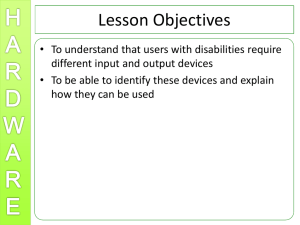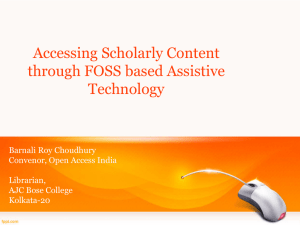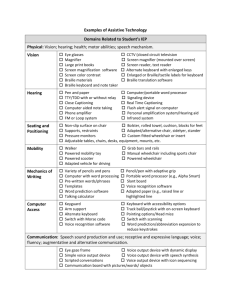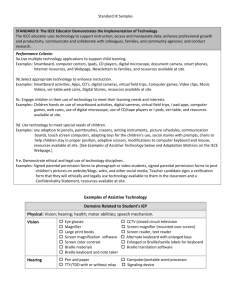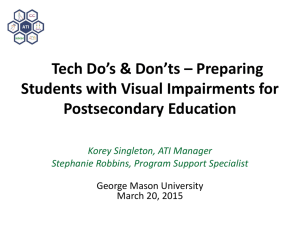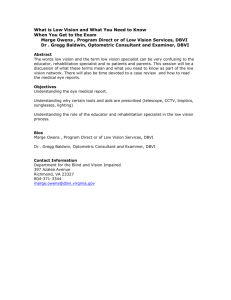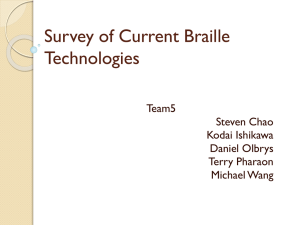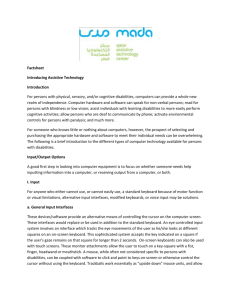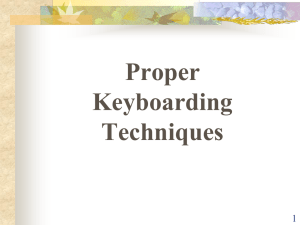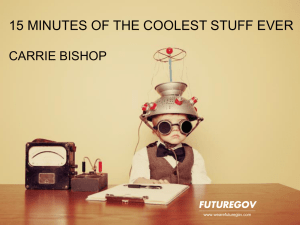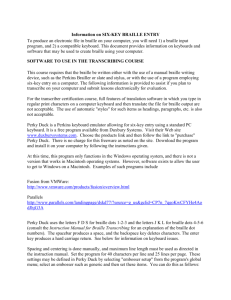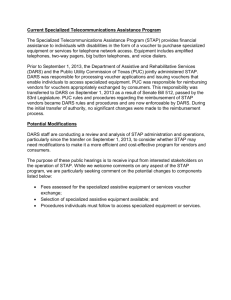Assistive Technology
advertisement
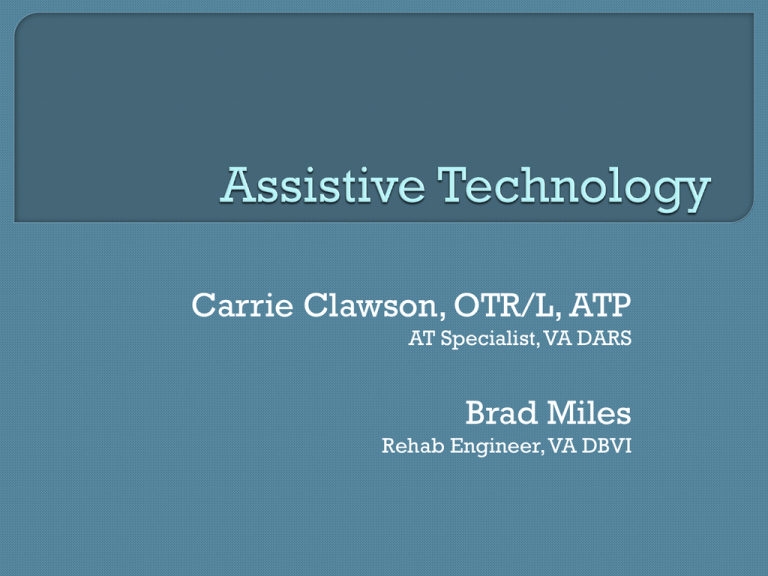
Carrie Clawson, OTR/L, ATP AT Specialist, VA DARS Brad Miles Rehab Engineer, VA DBVI Assistive Technology is any item, piece of equipment, or product system whether acquired off the shelf, modified, or customized that is used to increase, maintain or improve functional capabilities of individuals with disabilities. Public Law 108-364 Assistive Technology Act of 1998 as amended 2004 Assistive technology is a tool used by an individual with a disability to complete a work task or job function. Rehab Engineering Rehab Engineering Trackball Voice Recognition Software Headset Large Keyboards Track ball mouse Typing Aid Word Prediction software (Word Q) Speech Recognition Software (Dragon Naturally Speaking) Accessibility Options Sticky Keys Filter Keys On Screen Keyboard Speech Recognition Version 12 in 2012 Premium edition often used by people with fine motor impairments; Home edition for those with some ability to type/use mouse Complicated; requires the ability to learn commands Can be frustrating More robust voice profiles mean less training “out of the box” Windows Accessibility ( Magnifier & Narrator ) High Contrast Keyboard Magnifiers Screen Magnification (ZoomText) Screen Reader (JAWS) Speech Recognition (Dragon Naturally Speaking) CCTVs Braille Note Takers Braille Displays Screen magnification software Can customize level of magnification needed Also can read text on the screen Reads information on the screen Replaces viewing of the monitor Used by people without vision QWERTY Keyboard Braille Keyboard Braille Display Portable Wireless Digital Recorder / Player Optional GPS Braille Input Keyboard Attach to Windows Computers Attach to I-Devices Attach to Android devices Enlarge / Magnify Change Color Contrast Desktop Magnifiers Portable Magnifiers Handheld Magnifiers Text to speech Facilitates reading fluency, but not comprehension Useful for people with print or visual disabilities Supports study skills Natural Reader and Read Please have less features, can be downloaded free www.naturalreaders.com www.readplease.com Canes Walkers A chair or stool for resting Scooters wheelchairs Telephone amplification Closed Captioning Accessibility/Universal Access options for visual alerts and captions * VDDHH, Virginia Department for the Deaf and Hard of Hearing a good resource Voice recorder Livescribe Smartpen Smartphone/PDA Needs assessment Psychosocial factors Sensorimotor skills Vision Motor skills: strength, range of motion, fine motor Sensation: light touch/deep pressure, proprioception Cognitive abilities Caregiver support Environment of usage vendor support Training available Poor fit (no comprehensive assessment) Inexperience with AT/insufficient training in use Family/caregiver/employer not buying into use or sabotages AT Limited motivation to use AT (Not comfortable with tech, doesn’t like AT) Limited motivation to achieve goal WITHOUT AT Carrie Clawson • Carrie.Clawson@dars .virginia.gov • 703-539-9454 Brad Miles • Brad.Miles@dbvi.virgi nia.gov • 703-359-1108 DARS • 703-359-1124 Department for Aging and Rehabilitation Services (DARS) • 703-359-1124 Department for the Blind and Vision Impaired (DBVI) • 703-359-1100
